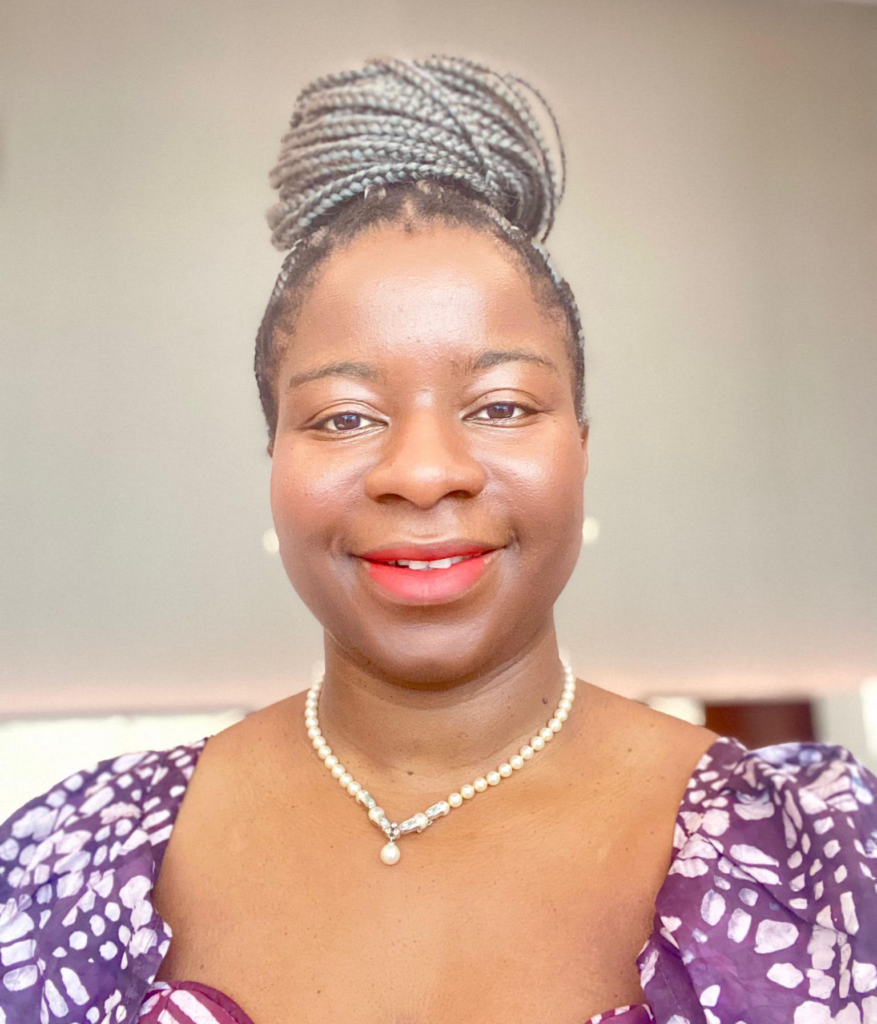
Dr Ifesinachi Okafor-Yarwood is an academic practitioner specialising in oceans governance and maritime security. She is a Lecturer in Sustainable Development at the University of St Andrews and a 2023 PEW Marine Fellow.
Her research has generated critical insights into the blue economy, gender environmental justice, human security, natural resources, maritime governance, and security. Dr Okafor-Yarwood brings a critical lens to sustainable development in managing marine and other natural resources and challenges the dominant assumptions in security, environmental justice, and maritime governance.
Dr Okafor-Yarwood’s multidisciplinary research combines empirical (indigenous epistemologies), doctrinal, historical, and theoretical analysis to investigate the complexities that shape environmental justice, maritime and natural resource governance and security in Africa. She continues to advance the understanding of sustainability as a question of resource management, environmental justice, and the disproportionate effects of depleting resources on security, poverty, and inequality.
The current project is the focus of her PEW Marine Fellowship research, which seeks to investigate the gendered socioeconomic effects of the closure of fisheries, emphasising four coastal regions of Ghana. The research seeks to identify practices inspired by Indigenous and local ecological knowledge that can be integrated with state-sanctioned management interventions to inform the development of more equitable and locally appropriate marine conservation measures.
Dr Okafor-Yarwood’s transdisciplinary work is inspired by her academic qualifications; she has a preparatory diploma in Law and a BA in International Relations, Peace, and Conflict Studies from London Metropolitan University, UK. She also has an MA in Conflict, Security, and Development and a PhD in Leadership, Security, and Development from King’s College London, UK.
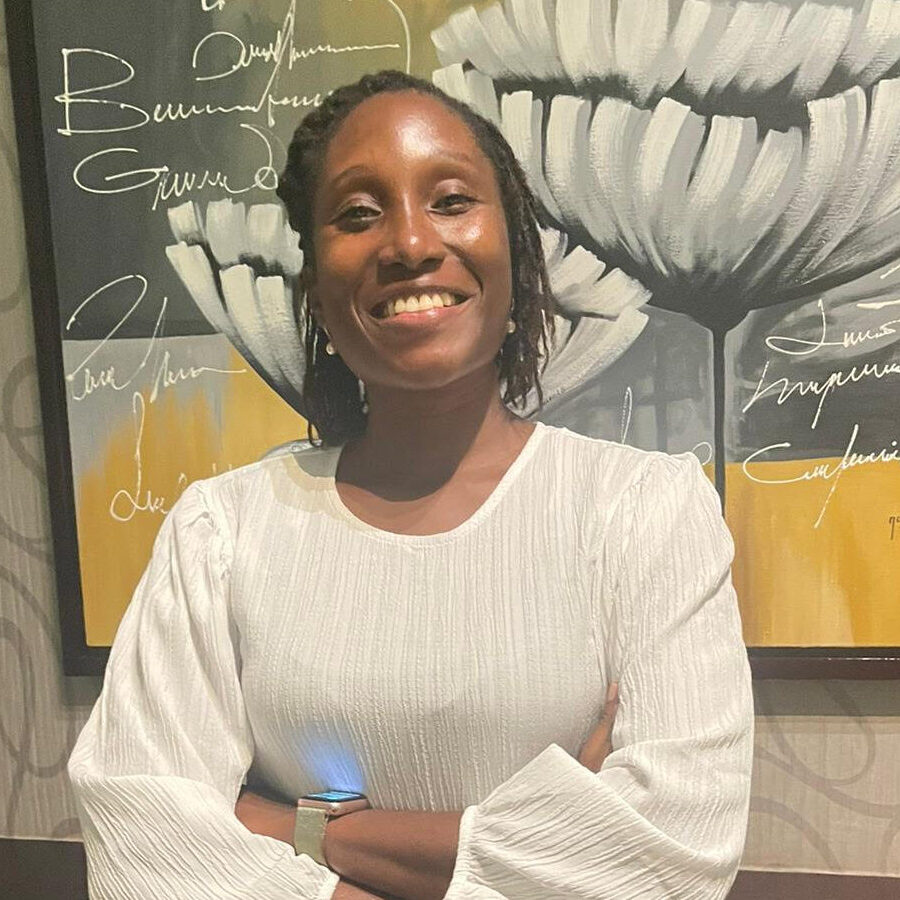
Josephine Laryea Asare is a small-scale fisheries specialist whose unwavering passion for marine environments motivates her to pursue a path for change. In the face of depleting fish stocks and the implementation of a fishing closed-season policy in Ghana, she seeks to combine Western scientific knowledge with traditional ecological knowledge of fisherfolk for sustainable marine conservation. Her research also aims to promote gender-sensitive interventions in small-scale fisheries to ensure equity.
Josephine has over a decade of experience engaging fisherfolk and fisheries stakeholders in Ghana. She has an MSc in Applied Marine and Fisheries Ecology from the University of Aberdeen, and is pursuing a PhD in Sustainable Development at the University of St Andrews. Through her research, Josephine envisions thriving marine ecosystems that provide greater economic benefits to fisherfolk while preserving their cultural heritage. Josephine’s research contributes to the PEW marine fellowship led by Dr Ifesinachi Okafor-Yarwood. Similarly, her research relates to SDGs (5 – gender equality, 10 – reducing gender inequality, 14 – life below water) and UNESCO’s global initiative of enhancing cultural heritage and empowering indigenous people in fisheries management.
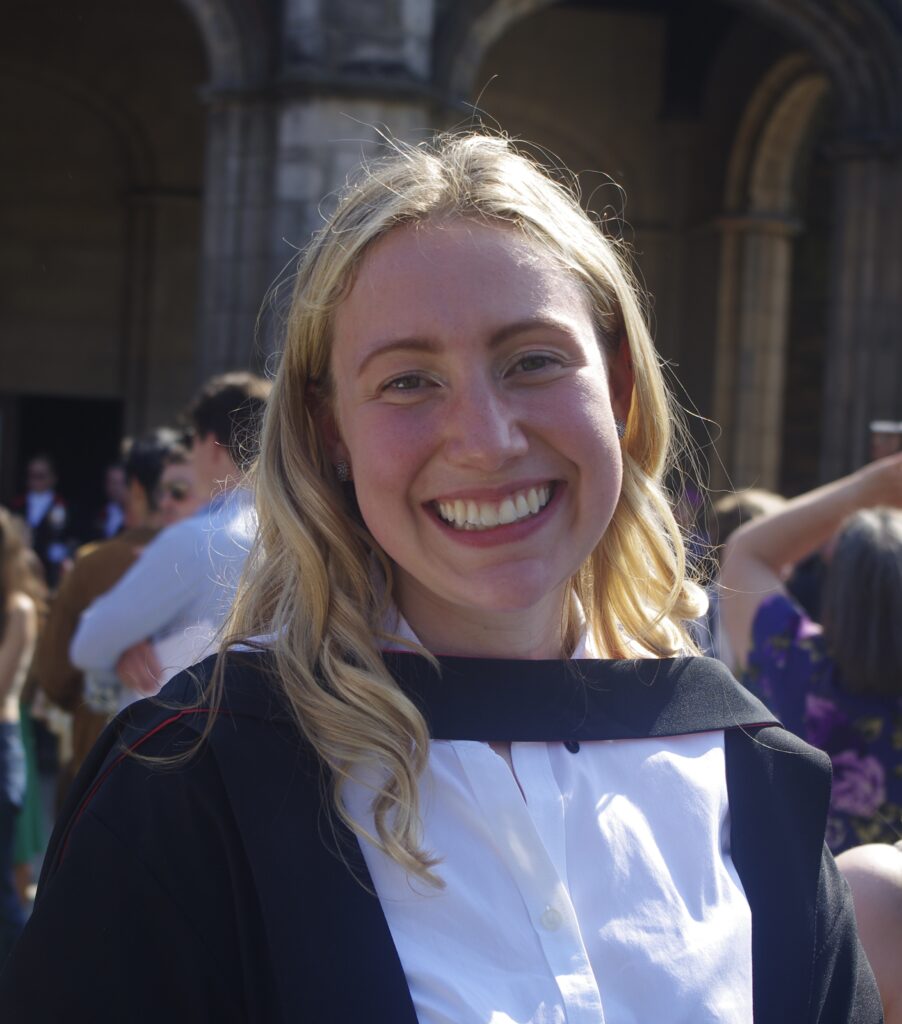
Capri Mancini is a research assistant for this exciting project, assisting in analysis of secondary academic literature, working to synthesise research with theory and historiography to provide holistic and novel insights into the historical and local knowledge systems and embodied relationships of coastal African communities with the oceans. She aims to investigate and apply broader concepts such as TEK (traditional ecological knowledge) and notions of taboos and values, legal systems, and governance structures amidst and against globalisation, amongst other concepts, to contribute to this project.
Capri is currently undertaking an MSc in Sustainable Development at the University of St Andrews, with particular interests in human and environmental security, public health, and political ecology, and emphasising individual experiences, stories, and narratives to understand experiences of climate change better. Her background is in International Relations and Social Anthropology, having graduated with a first-class MA with Joint Honours in the two subjects from St Andrews in June 2023. She seeks to incorporate her background knowledge of theory and methods to enrich her analysis for this project and is honoured to have the privilege to work alongside world-leading academics in this study!
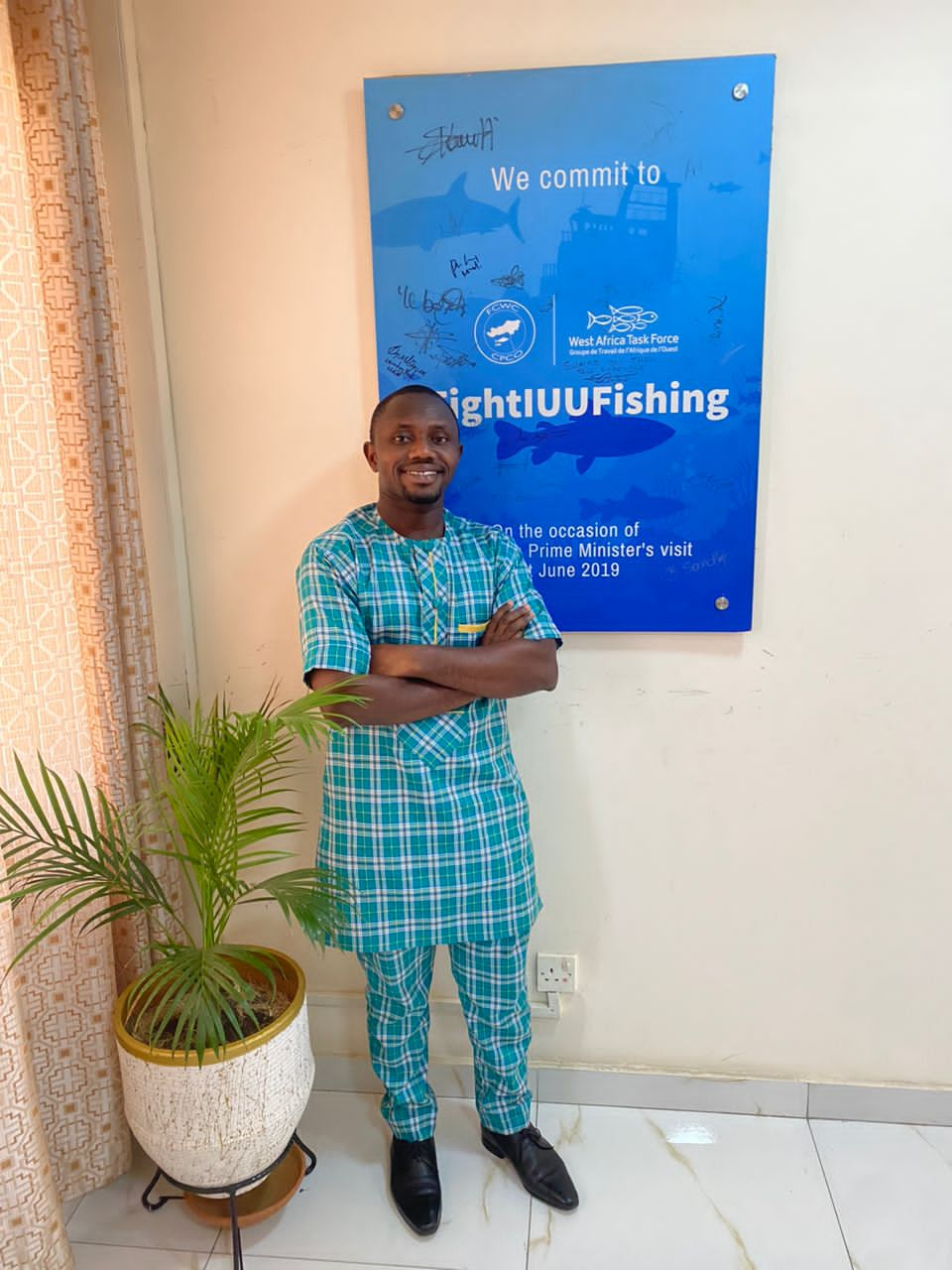
Emmanuel Tenkorang is a seconded staff at the Fisheries Committee for the West Central Gulf of Guinea (FCWC), where he assists in collating fisheries data from the FCWC member states and ensures they meet FAO-FIRMS standards.
Before his appointment at FCWC, he worked as a fisheries manager at the Oceanography Unit of the Fisheries Scientific and Survey Division (Fisheries Commission, Ghana).
Emmanuel has participated in national and regional workshops on fish stock assessment and fisheries management, among other topics. His research interests include sustainable livelihoods in coastal communities, Climate variability and adaptation, and sustainable fisheries management.

Kwesi Johnson, a development expert, has significantly contributed to the field. His journey began with a background in Theatre Studies from the University of Ghana, Legon (1996). He further honed his skills with postgraduate degrees in Development Studies (M&E) from the Ghana Institute for Management and Public Administration (2002), an Executive Master’s in Project Management from the Project Management College, London (2009), and an MA in Development Management from Ghana Christian University College/University of Wales (2011).
Kwesi’s professional experience is as diverse as his language proficiency. He has worked in law enforcement agencies, focusing on fisheries management, maritime security, and anti-human trafficking. In 2018, he broadened his horizons with study tours at Minnesota State University and Washington State University for Trafficking in Persons/Modern Day Slavery initiatives. He is fluent in English, French, Ewe, Ga, Akan, and Nzema.
He has provided training and technical support to development initiatives in Ghana’s coastal and inland fishing areas and forest-fringe mining communities. His collaborations include international organisations, local NGOs, academia, and government agencies. Kwesi’s advocacy efforts focus on natural resource utilisation, community health, adult education, gender inclusion, and eco-tourism. He has contributed to governance processes through his work with the UNDP, USAID, and the EU in Ghana. Kwesi enjoys global political affairs, maritime issues, history, tennis, swimming, soccer, scrabble, wildlife, and fishing in his free time.

Nana KWEIGYAH is a small-scale fisher, a canoe owner, and a fisher leader. He is actively involved in advocating for the effective participation of fishers in fisheries management and governance. His focus includes promoting safety at sea in artisanal fisheries, advocating for fishers’ welfare, and building community resilience in response to the challenges posed by climate change and declining fisheries. Currently, he serves as the President of the Canoe and Fishing Gear Owners Association of Ghana (CaFGOAG). He is a Steering Committee member of the KASA Ghana Initiative, representing the Fisheries Coalition. Previously, he represented Ghana as the Youth Leader at the Confederation of Professional Organization of Artisanal Fisheries (CAOPA).
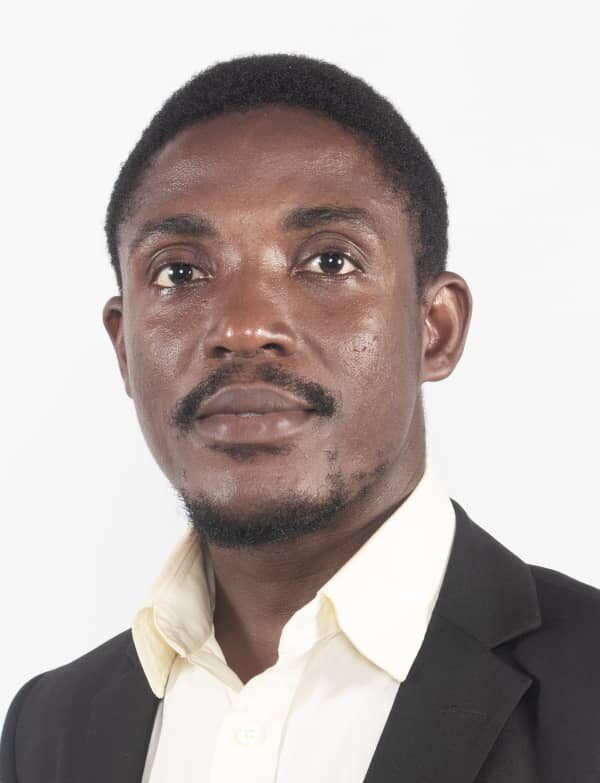
Kenneth Arthur is a fisher, specifically, a canoe owner in Abandze and Cape Coast. He hails from Abandze in the Mfantseman municipality in the Central Region of Ghana. Kenneth currently serves as the General Secretary of the Canoe and Fishing Gear Owners Association of Ghana (CaFGOAG) and the Central Region Chairperson of the Small Pelagic Co-management Committee (SPCC) of Ghana.
Acknowledging the fact that fishing is the main livelihood activity for coastal communities in Ghana, Kenneth is a passionate advocate for small scale fishers rights in Ghana. Through his work with CaFGOAG and the SPCC, he is contributing to charting the course towards a robust small scale fisheries sector that addresses the socio-economic challenges faced by fishing communities in the four coastal regions of Ghana.

Gabriel Sylvanus Mevuta is a dedicated marine and biodiversity conservation enthusiast with a strong background in data analysis and program delivery. He is currently working at Friends of the Nation, a socio-environmental advocacy NGO. He holds an MSc in Public Policy and Management.
Gabriel combines his technical expertise with a deep passion for environmental stewardship, making him an asset in the field of sustainable development. He has a proven track record in designing and implementing Monitoring & Evaluation (M&E) frameworks, excelling in developing robust monitoring plans, defining key performance indicators, and employing effective data collection methodologies.
With proficiency in both quantitative and qualitative analysis tools, Gabriel skillfully analyses data to derive actionable insights that inform decision-making processes. His commitment to accountability, transparency, and results-driven programming, paired with his passion for marine and biodiversity conservation, positions him as a significant contributor to the success and impact of any environmental program.